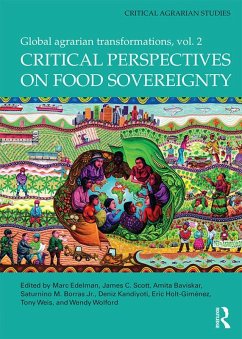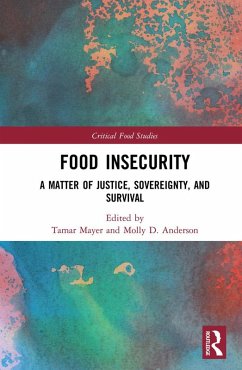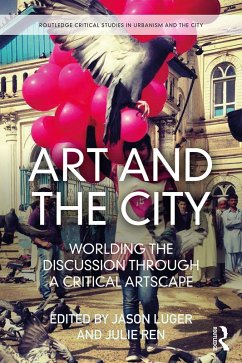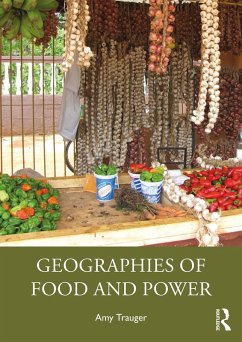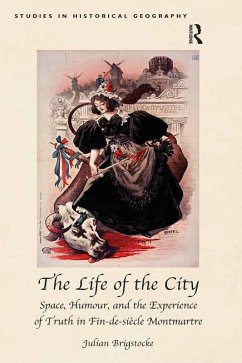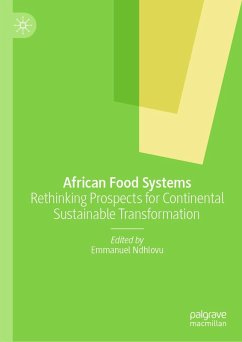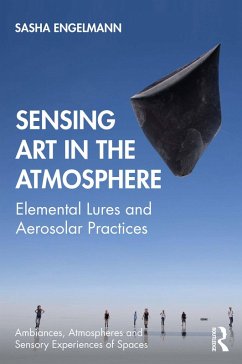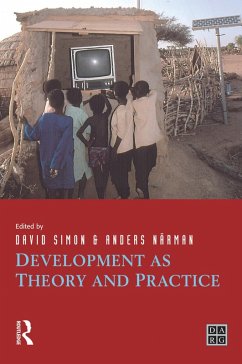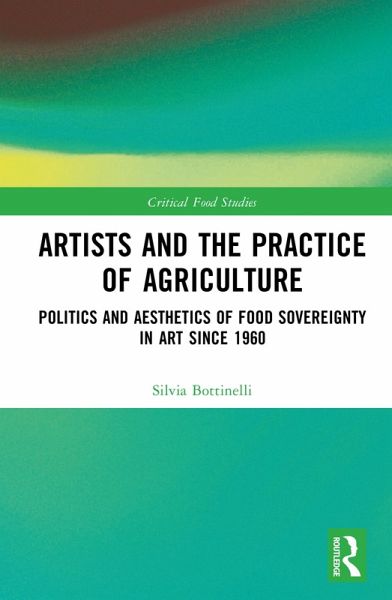
Artists and the Practice of Agriculture (eBook, PDF)
Politics and Aesthetics of Food Sovereignty in Art since 1960
Versandkostenfrei!
Sofort per Download lieferbar
41,95 €
inkl. MwSt.
Weitere Ausgaben:

PAYBACK Punkte
21 °P sammeln!
Artists and the Practice of Agriculture maps out examples of artistic practices that engage with the aesthetics and politics of gathering food, growing edible and medicinal plants, and interacting with non-human collaborators. In the hands of contemporary artists, farming and foraging become forms of visual and material language that convey personal and political meanings.This book provides a critical analysis of artistic practices that model alternative food systems. It presents rich academic insights as well as 16 conversations with practicing artists. The volume addresses pressing issues, s...
Artists and the Practice of Agriculture maps out examples of artistic practices that engage with the aesthetics and politics of gathering food, growing edible and medicinal plants, and interacting with non-human collaborators. In the hands of contemporary artists, farming and foraging become forms of visual and material language that convey personal and political meanings.
This book provides a critical analysis of artistic practices that model alternative food systems. It presents rich academic insights as well as 16 conversations with practicing artists. The volume addresses pressing issues, such as the interconnectedness of human and other-than-human beings, the weight of industrial agriculture, the legacy of colonialism, and the promise of place-based and embodied pedagogies. Through participatory projects, the artists discussed here reflect on the links between past histories, present challenges, and future solutions for the food sovereignty of local and networked communities.
The book is an easy-to-navigate resource for readers interested in food studies, visual and material cultures, contemporary art, ecocriticism, and the environmental humanities.
This book provides a critical analysis of artistic practices that model alternative food systems. It presents rich academic insights as well as 16 conversations with practicing artists. The volume addresses pressing issues, such as the interconnectedness of human and other-than-human beings, the weight of industrial agriculture, the legacy of colonialism, and the promise of place-based and embodied pedagogies. Through participatory projects, the artists discussed here reflect on the links between past histories, present challenges, and future solutions for the food sovereignty of local and networked communities.
The book is an easy-to-navigate resource for readers interested in food studies, visual and material cultures, contemporary art, ecocriticism, and the environmental humanities.
Dieser Download kann aus rechtlichen Gründen nur mit Rechnungsadresse in A, B, BG, CY, CZ, D, DK, EW, E, FIN, F, GR, HR, H, IRL, I, LT, L, LR, M, NL, PL, P, R, S, SLO, SK ausgeliefert werden.





